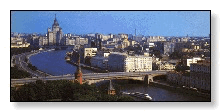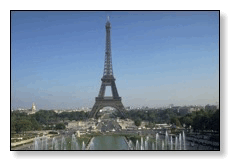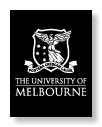| 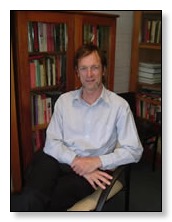
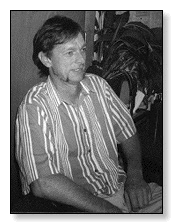
|
|
Assoc. Professor | Stephen Fortescue
Co-ordinator, Postgraduate Research Program
319 Morven Brown
Tel.: +61 (2) 9385-3622
Fax: +61 (2) 9385-1555
email: s.fortescue@unsw.edu.au
|
|
His principal areas of interest cover Soviet and Russian politics, science management in Russia, and Russian state bureaucracy. His current search focus is Russian industry policy, particularly in the mining and metals industry. He maintains a "watching brief" on Russian science policy. He is presently researching 'The Russian Metals Industry in Transition (1998 - 2000)," funded by an Australian Research Council large grant. This follows an earlier ARC large grant to investigate "The State and Industry Policy in Russian Transition (1995-97)." He has held fellowships at The Australian National University and The University of Birmingham.
Ph.D. Australian National
|
|
|
| Courses Currently Taught:
POLS1008 Politics of Post-Communist Systems
POLS2040 Politics and Business
POLS3041 Post-Soviet Politics: Present and Future
|
|
Selected Publications |
Policy-making for Russian Industry (London and Basingstoke: Macmillan, and New York: St Martin's Press, 1997).
Science Policy in the Soviet Union (London: Routledge, 1990).
The Communist Party and Soviet Science (London and Basingstoke: Macmillan, and Baltimore: Johns Hopkins University Press, 1986).
|
|
|
|
|
| POLIBUS
Newsletter of the IPSA Research Committee 38 on Politics and Business
Vol.2 Issue 1 July 1996
|
|
|
|
|
Editorial
| Happy New Year and welcome to a bumper issue of POLIBUS! In this edition, we are introducing a flavour of central and eastern Europe, with a special report from Stephen Fortescue on his experiences of researching in Russia, and a commentary from Sergei Peregudov on the 5th World Congress of Central and East European Studies.
|
|
|
|
|
Musings from Moscow
| For this issue of POLIBUS we are pleased to bring you a report of the Politics and Business network in action.
Stephen Fortescue, from the School of Political Science at the University of New South Wales, Australia, recently returned from a study trip to Russia. The trip was greatly facilitated by the contacts available through the POLIBUS network.
"My study leave consisted of eleven months in Moscow, researching a book on the politics of industrial administration in contemporary Russia. Although I had no formal institutional affiliation, I was greatly assisted in my research by two Russian members of Research Committee 38, Sergei Peregudov and Aleksei Zudin, both of IMEMO. I also had good contacts in the Diplomatic Academy, the Moscow offices of the Carnegie Foundation and the Ohlin Institute of Harvard University, as well as access to the Duma and a range of governmental institutions."
The book (manuscript to be delivered to Macmillan by 31 March 1996) is essentially a study of the institutions and processes involved in industry policy making. Chapters will specifically address the basic issues involved in current Russian economic and industry policy making, central and sectorally specialised state institutions, business and industry representative associations, and the industry policy activities of individual enterprises.
"The study of government-business relations in Russia has become popular in recent years, and so I did not concentrate my primary research effort in that area while in Moscow. Rather I relied on the newspapers and masses of information and documents provided by our good friends at IMEMO, Sergei Peregudov, Alexei Zudin and their colleagues.
"If I had to sum up my understanding of the key features of the current state of Russian government-business relations in a sentence or two, they would be the relative lack of access of industry (as distinct from other sectors of the economy) to government, something which continues to push it into largely unsuccessful direct political participation; but at the same time the importance for what access remains of the relatively neglected industry-oriented state institutions.
"I concentrated my efforts on state institutions. Some highlights among the interviews included the deputy head of the Personnel Administration of the central government apparatus, who believed that competitive recruitment to the civil service (konkursy) consisted of him ringing a few mates to get a short list together, and who was delighted that most of the zavlaby ('laboratory heads', ie. the academics who had moved into the government apparatus under Gaidar) had been pushed out. Another was the head of a regional government Industrial Administration who couldn't remember the names of the central industrial state agencies and who tried to hide his complete lack of anything to do by playing with a huge bank of telephones."
Despite improvements in the availabilityof goods and services in Moscow, Stephen still found it an uncomfortable place to live, and provides a few tips on coping with life in a heavily polluted city where bombings and murders are a daily occurence.
"It help
|
|
|
|
|
Regional News: Central and Eastern Europe
|
The 5th World Congress of Central and East European Studies took place in Warsaw, Poland,6-11 August 1995. Sergei Peregudov gives his views of the conference.
The congress was jointly organised by the International Council for Central and East European Studies (formerly the International Council for Soviet and East European Studies) and the Polish Academy of Science. It attracted around 1400 participants, covering a very wide range of topics, concerning politics, economics, social and cultural problems of the countries concerned.
One of the more notable and interesting speeches at the opening ceremony was that of the architect of Polish economic reform, Professor Leszek Balcerowicz , who summarized the conception of reforms and the results of their practical realisation.
The attention of many participants was concentrated on the problem of political and economic development of the former communist countries. Among the most interesting sessions related to these problems, the panel on "Entrepreneurial Behaviour During Transition" and the round table "Theoretical Aspects of Transformation Processes" are worth mentioning. The former was based on solid empirical research; the latter was devoted to discussion of neo-liberal, monetarist and other conceptual approaches to the reforms. Some papers dealt with the emergence of the new elite and the role of the intelligencia. But surprisingly there was a virtual absence of presentations analysing the new business interest groups, their behaviour and relations to the state. There was also too clear-cut a division between the papers and panels discussing economic and political matters, which did little to contribute to an understanding of the transformation process. A notable exception from this 'separatist' approach was a panel on "State Institutions and Russian Economic Policymaking", to which the rest of this commentary shall be devoted.
Papers were presented by Stephen Fortescue (University of New South Wales, Australia), Peter Rutland (Wesleyan University), and Eugene Huskey (Stetson University, USA). Stephen Fortescue analysed the industrial policy instruments of the Russian government; Peter Rutland presented his analysis of privatisation in Russia and the Czech Republic; Eugene Huskey's paperwas dealing with the roles of Presidential apparatus and the government in Russian economic policymaking. Overall, the attempt was to build a more general (but not yet established) model of relations between state and economy in Russia during the present stage of the transitional period. Fortescue's main thesis was that the level of state institutions responsible for industrial policy is too low to seriously influence the economic policy and the direction of economic reform. It followed from his analysis that this low-profile has made the position of reformers at the higher level more secure and allowed them to get through with their radical aproach. Nevertheless, the panel discussant (Sergei Peregudov) felt that Fortescue's analysis underestimated the influence of such individuals as First Deputy Premier Soscovetz, and some decision-making bodies under his direct control. Now, after the the December 1995 election to the Duma, the role of people like Soscovetz will almost inevitable gain new strength; it will be of great interest to to analyse the new balance of power within the governmental institutions and changes in economic and industrial policy, related to that.
In his comparative analysis of privatisation in Russia and the Czech Republic, Rutland emphasised not only similarities but serious differences in methods of privatisation and the results achieved by it. The next logical step of this research is to widen the scope of comparison by the analysis of privatisation in Poland, Hungary and perhaps some other countries where privatisation was (and is) going on by different methods, and to consider all three main elements of reform-liberalisation, privatisation and stabilisation in a more organic unity.
Eugene Huskey's main thesis was that the President and his apparatus way (and is) the main engine of reforms and that the government played a secondary, purely executive role in it. Whilst accepting the general view, the panel discussant expressed some disagreement with the rigidity of Huskey's conclusions, particularly in view of the clear tendency to a more serious role of the government in the economic policy-making. Of course, it is again of great interest how these relations will develop after parliamentary and (especially) presidential elections in 1996.
There is a growing difference between former communist countries in the central and east European area, and Russia and its CIS neighbours. The former are at the end of the period of transformation to the market economy, the latter are in the middle or even at the beginning of it. And without any doubt, the second stage of this transformation will be the most critical one. To be sure, the character and the outcomes of this new stage will be one of the most interesting topics at the VIth world Congress of CEES, which will take place in Tampere (Finland) in 2000.
|
|
|
|
|
|
![]()
